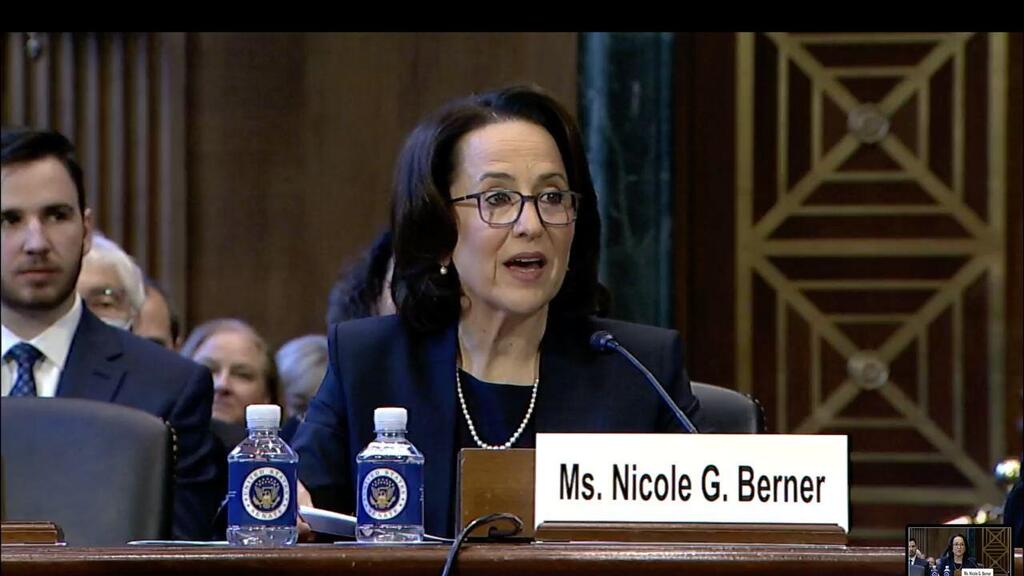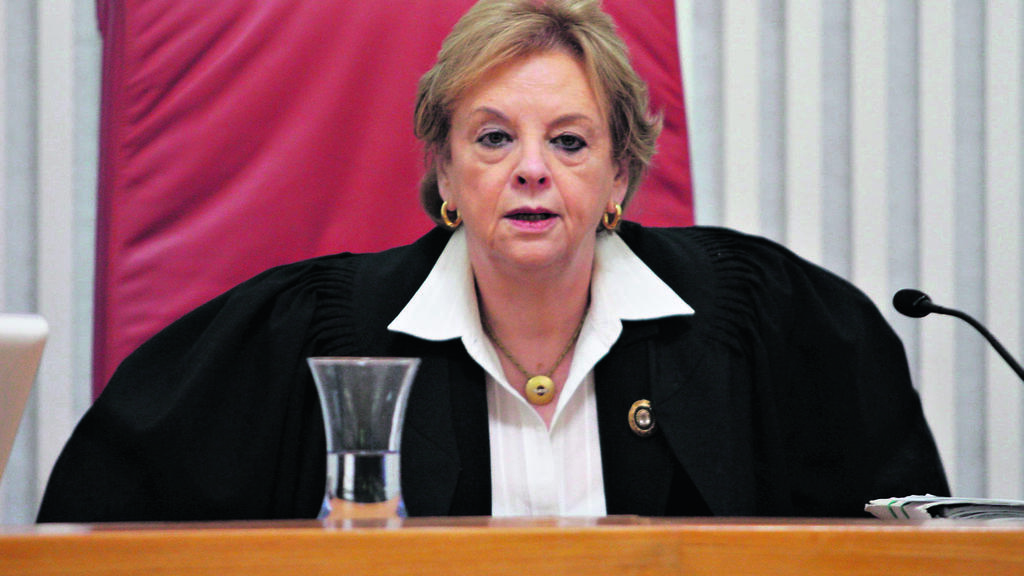The U.S. Senate confirmed for the first time on Monday the appointment of an Israeli-American lawyer to the federal bench. Nicole Berner was approved by a majority of 50 votes to 47, to sit on the U.S. Court of Appeals for the 4th Circuit, with jurisdiction over Virginia, West Virginia, Maryland, North Carolina and South Carolina.
Read more:
She is also the first member of the LGBTQ+ community to be appointed to one of the more prestigious judicial positions in America. The life-long appointment requires U.S. President Joe Biden's signature.
Breaking the double glass ceiling appears to be the natural progression for Brenner who in 1999, while living in Israel, appealed to Israel's High Court of Justice to be recognized as the mother of the children born into her family with her then-partner Ruti Kadish.
In the past this court was one of the most conservative appeals courts in the U.S, but since the Obama administration it has actually become one of the most liberal courts with groundbreaking rulings on transgender rights and gun restrictions. The liberal Berner will fit the court like a glove.
Berner was born in 1965 in England and as a child moved with her family to Oakland, California where she completed her bachelor’s degree in Women's Studies at the University of California, Berkeley. After spending one semester at the University of Haifa, she decided to move to Israel when she completed her degree.
She had said in past interviews that in Israel she developed her true passion for promoting the values of democracy and women's rights and still serves as a member of the advisory board of the Association for Civil Rights in Israel.
In 1990, Berner founded the Bat Adam organization in Tel Aviv, which focused on promoting the rights of victims of sexual assault and domestic violence, and in her advocacy work met another Berkley alumna, Ruti Kadish. The two married in 1994. Berner said the local newspaper refused to print the wedding announcement, and suggested calling the event a "commitment ceremony." The couple refused. "We didn't have any commitment ceremony, we had a wedding," Berner said. "It just shocked me that we had to push the limits of journalism." In January 1996, Ruti gave birth to their child, Matan.
"We wanted to have a child together. The decision over which of us would be carry the pregnancy was based on who could take time off from school and work," said Berner. The state of California approved Berner's status as Matan's mother without problem, but when the couple began to consider returning to Israel, their request to have their parental rights recognized was refused by the Israeli consulate in San Francisco. "The people at the consulate were really nice, and felt terrible that Israel would not acknowledge that we were both the parents," Berner said.
The family returned to Israel, where Berner worked as a lawyer and in November 1998 gave birth to their second son, Naveh. She then appealed to the Supreme Court through the Civil Rights Association so that her parental rights in Israel would extend to the couple's first born.
Supreme Court justices Dalia Dorner and Dorit Beinisch, were in favor of Berner's request but justice Abdel Rahman Zuabi opposed it. "There were two women and a man presiding," Berner said at the time. "I don't know if it was just a weird coincidence, but in the three-judge panel, the women supported us and the man didn't. All this while our case was incredibly strong. Your family status goes with you wherever you are in the world. You can't be a parent to a child in one country and not a parent in another."
As expected, the verdict was criticized by religious Knesset lawmakers, who said it was a "affront" to Jewish family values. For the couple, the verdict was only technical and, shortly thereafter, the family returned to the U.S. where their third son, Segev, was born. He was recognized as the son of two mothers in Israel in 2007, only after the Supreme Court reprimanded the Interior Ministry which initially refused to register it.
Over the years the family lived between Maryland and Israel. "We feel at home in both places and we have a community in both places," Berner said. She and Kadish eventually divorced, and Berner worked her way up through the U.S federal court system. She clerked for senior judges who were considered pioneers in the field of human rights, such as Thelton Henderson and Betty Fletcher.
Berner later married Debra Katz, a civil rights attorney, and the couple now lives in Takoma Park in Maryland, where they are active members of the local synagogue.
First published: 08:02, 03.20.24




